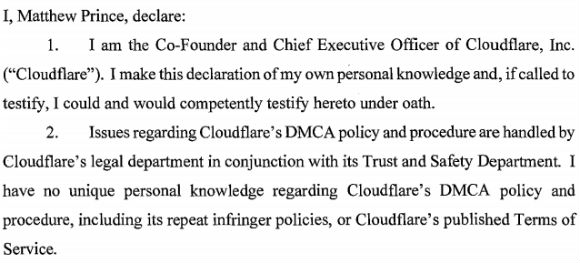20th Century Fox is Looking for Anti-Piracy Interns
samedi 30 septembre 2017 à 18:12 Piracy remains one of the key threats for most Hollywood movie studios.
Piracy remains one of the key threats for most Hollywood movie studios.
Most companies have entire departments dedicated to spotting infringing content, understanding the changing landscape, and figuring out how to respond.
20th Century Fox, for example, has its own Content Protection group, headed by Ron Wheeler. The group keeps an eye on emerging piracy threats and is currently looking for fresh blood.
The company has listed two new internships. The first is for a Graduate JD Law Student, who will be tasked with analyzing fair use cases and finding new targets for lawsuits, among other things.
“Interns will participate in the monitoring of and enforcement against such piracy, including conducting detailed copyright infringement and fair use analyses; identifying and researching litigation targets, and searching the internet for infringing copies of Fox content.”
Fox notes that basic knowledge of the principles of Copyright Law is a plus, but apparently not required. Students who take this internship will learn how film and television piracy affects the media industry and consumers, preparing them for future work in this field.
“This is a great opportunity for students interested in pursuing practice in the fields of Intellectual Property, Entertainment, or Media Law,” the job application explains.
A second anti-piracy internship that was posted recently is a search and analytics position. This includes organizing online copyright infringement intelligence and compiling this in analytical piracy reports for Fox executives.

The research job posting shows that Fox keeps an eye on a wide range of piracy avenues including search engines, forums, eBay and pirate sites.
“Anti-Piracy Internet Investigations and Analysis including, but not limited to, internet research, forum site investigation, eBay searches, video forensics analysis review, database entry, general internet searches for Fox video content, review and summarize pirate websites, piracy trend analysis, and more.”
Those who complete the internship will have a thorough understanding of how widespread piracy issues are. It will provide insight into how this affects the movie industry and consumers alike, Fox explains.
While the average torrenter and streaming pirate might not be very eager to work for ‘the other side,’ these internships are ideal positions for students who have aspirations of working in the anti-piracy field. If any TorrentFreak readers plan to apply and get the job, we’ll be eager to hear what you’ve learned in a few months.
Source: TF, for the latest info on copyright, file-sharing, torrent sites and ANONYMOUS VPN services.
 With around 170,000 users, HDClub was known for high-quality releases that often leaked to public sites like The Pirate Bay.
With around 170,000 users, HDClub was known for high-quality releases that often leaked to public sites like The Pirate Bay.
 Last month Cloudflare CEO Matthew Prince decided to
Last month Cloudflare CEO Matthew Prince decided to 



 In recent years, many copyright holders have grown frustrated with pirates copies of their content (re)appearing on hundreds of online platforms.
In recent years, many copyright holders have grown frustrated with pirates copies of their content (re)appearing on hundreds of online platforms.